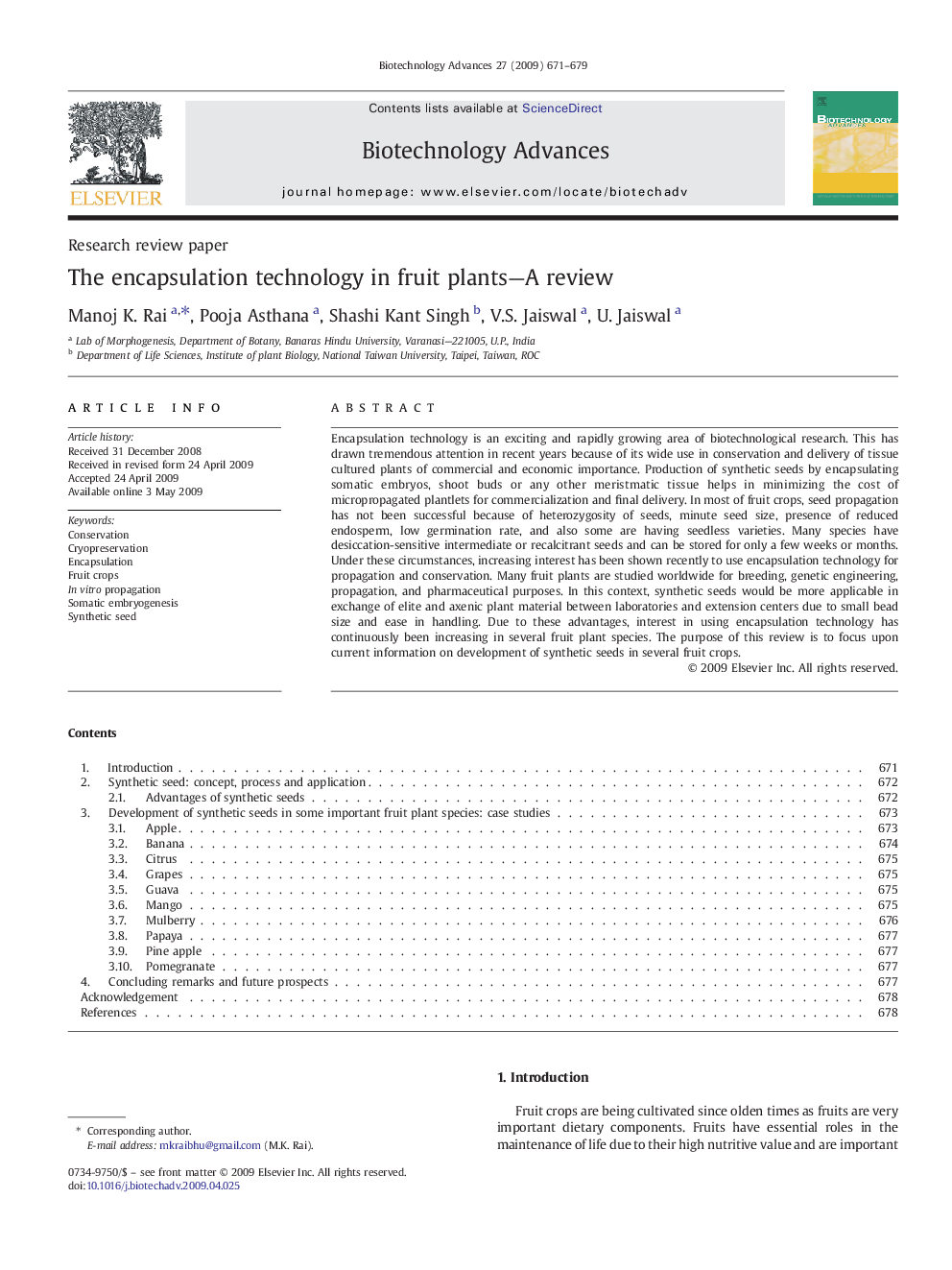| Article ID | Journal | Published Year | Pages | File Type |
|---|---|---|---|---|
| 14643 | Biotechnology Advances | 2009 | 9 Pages |
Encapsulation technology is an exciting and rapidly growing area of biotechnological research. This has drawn tremendous attention in recent years because of its wide use in conservation and delivery of tissue cultured plants of commercial and economic importance. Production of synthetic seeds by encapsulating somatic embryos, shoot buds or any other meristmatic tissue helps in minimizing the cost of micropropagated plantlets for commercialization and final delivery. In most of fruit crops, seed propagation has not been successful because of heterozygosity of seeds, minute seed size, presence of reduced endosperm, low germination rate, and also some are having seedless varieties. Many species have desiccation-sensitive intermediate or recalcitrant seeds and can be stored for only a few weeks or months. Under these circumstances, increasing interest has been shown recently to use encapsulation technology for propagation and conservation. Many fruit plants are studied worldwide for breeding, genetic engineering, propagation, and pharmaceutical purposes. In this context, synthetic seeds would be more applicable in exchange of elite and axenic plant material between laboratories and extension centers due to small bead size and ease in handling. Due to these advantages, interest in using encapsulation technology has continuously been increasing in several fruit plant species. The purpose of this review is to focus upon current information on development of synthetic seeds in several fruit crops.
